Google first announced Android Studio, built on the popular IntelliJ IDEA Java IDE, at its I/O Developer conference in May 2013. The company’s pitch was very simple: This is the official Android IDE.
At the time, Google promised Android Studio would make developers “faster and more productive” and called it a replacement for Eclipse. In fact, the company has a list of migration steps just for Eclipse users.
What’s New
Given that Android Studio is only hitting 1.0 now, all the features are “new” to some extent. But Google does have specific features it wants to highlight (for a full overview, check out the Android Studio Basics page).
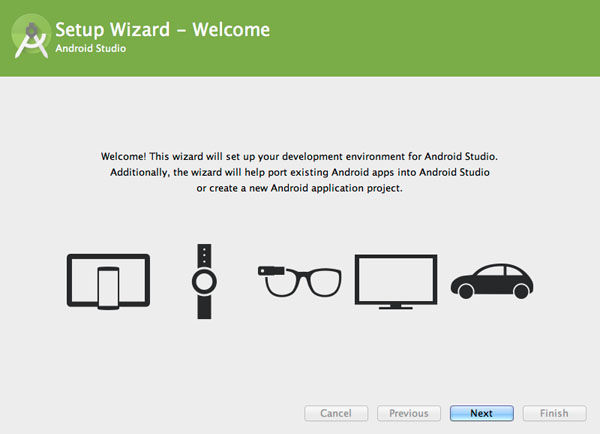
First off, we have the First Run Setup Wizard, which was amusingly absent from a few of the release candidate builds. This “getting started” wizard now installs the Android SDK you need, sets up your development environment settings, creates an optimized emulator for testing your app, and bundles a set of code templates.
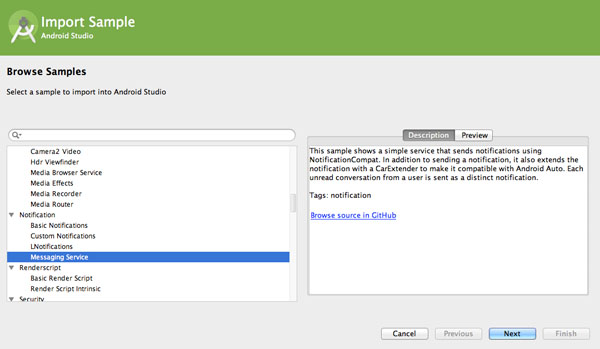
Speaking of templates, Android Studio includes wizards that let you start with new project templates or import Google code samples. If empty projects scare you or you’re having trouble getting started, you’ll like sample importing and the included templates.
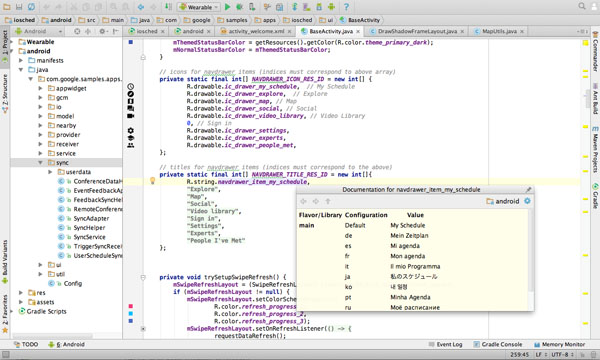
Android Studio leverages IntelliJ IDEA’s intelligent code editing capabilities. These include advanced code completion, refactoring, and code analysis.
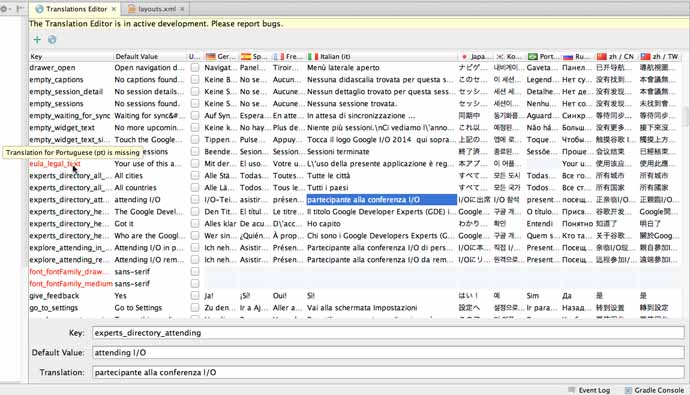
Android Studio lets you manage string translations for all of your apps. You can easily extract and analyze all hard-coded strings in any project.
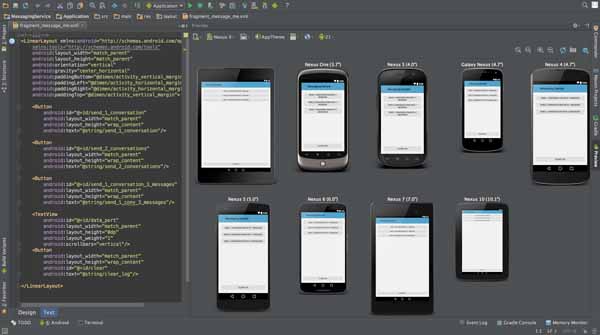
Android Studio lets you both edit and preview your Android layouts across multiple screen sizes, languages, and even API versions. If you’re developing an app that will run on more than one Android release — and, given the current version landscape, you really should be — this will be very helpful.
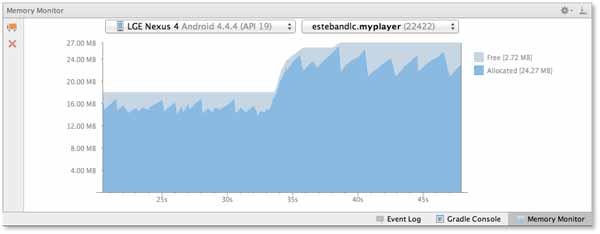
Android Studio includes a performance analysis tool called Memory Monitor. It shows you the memory usage of your app over time so you can find ways to improve your app’s performance.
Finally, Android Studio enables an easy way to add Google Cloud Backends and Endpoints to your app, as well as Google Cloud Messaging. The latter is one of the features Google initially promised would come to the IDE. The company’s goal was (and still is) to make Android Studio the single hub in which Android developers can build new apps as well as refresh old ones.
Android Studio uses a Gradle-based build system that Google says “provides a lot of flexibility and extensibility, as well as the ability to build from within and outside of the IDE.” Key features include build variant support to better handle different build types (debug vs. release) or different versions of the same app (paid vs. free), multi-APKs handling through splits, multi-dex support, and dependency management for third-party libraries.
Google today also released version 1.0 of the Gradle plugin with a file format it considers to be stable. Since communication between Android Studio and the Gradle plugin is now stable as well, updating one will not require updating the other.
What’s Next
The current post-1.0 roadmap includes just three notable additions: Native SDK Manager, better refactoring support, and more Gradle support improvements. Google also says it plans to add features ranging from improved app testing and better support for game development. Other than that, Jamal Eason, product manager of Android, told VentureBeat the company has “nothing specific to share at this point” in regard to the future of Android Studio.
With the first stable release now out the door, the company will be using a schedule that is similar to the release channels for Google Chrome, meaning developers can choose how quickly they get the latest features for Android Studio.
Android Studio will receive updates on four different release channels (you can change between them in File => Settings => Updates): Canary, Dev, Beta, and Stable. Here is how they differ:
-
Canary channel: These builds are the bleeding edge, released about weekly. While they do get tested, they are still subject to bugs, as Google wants developers to see what’s new as soon as possible.
-
Dev channel: These builds are hand-picked older Canary builds that survived the test of time. This channel is updated biweekly or monthly.
-
Beta channel: Although Android Studio has been considered preview-quality for much of its existence, it did have a handful of beta releases, starting with 0.8.14 all the way to the most recent release candidates.
-
Stable channel: Version 1.0 was released today, and other stable milestones will follow.
Eason told VentureBeat that Google has “no additional guidance on release channel timing,” meaning you shouldn’t expect beta or stable releases on a specific schedule. “We will continue to use all the channels and have the most frequent release builds on canary channel,” he added.
That being said, we wouldn’t recommended anything but the stable channel if you’re using Android Studio for production. As we wait for the next stable release, Google is asking developers for feedback on how they work and what capabilities they would like to have when developing for Android (a five-minute survey can be taken via Google Docs).
Android Studio is still a far cry from Microsoft’s Visual Studio, but it’s easy to see how Google could build it out into a competitor. Given the name and direction, however, Google seems perfectly happy with keeping the IDE focused on just development for its mobile operating system.
Source: venturebeat.com



![]()
![]() Logging in...
Logging in...